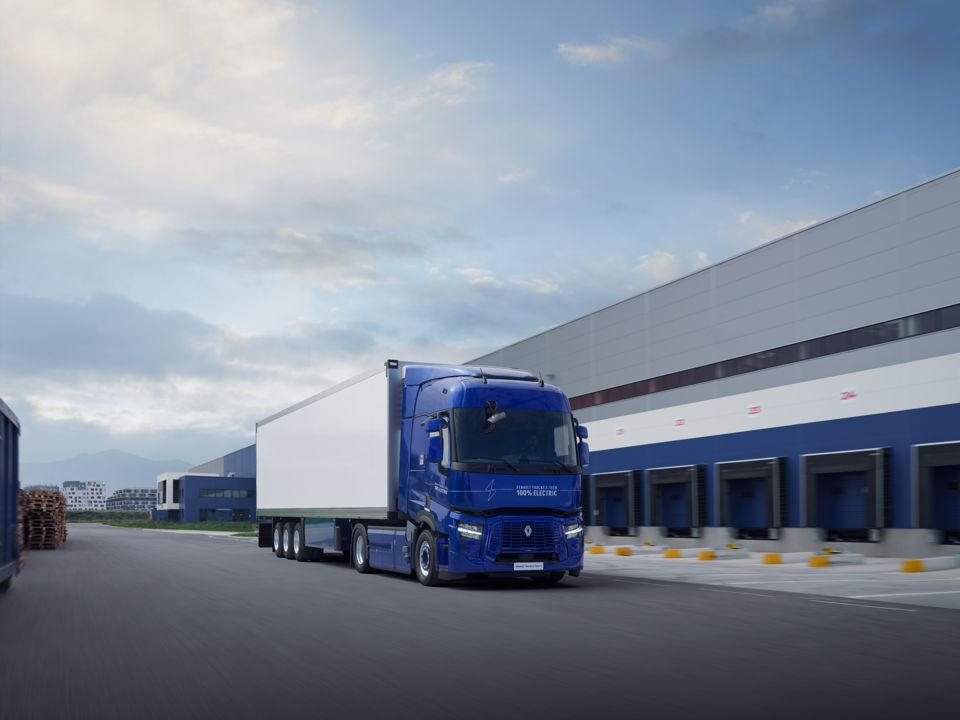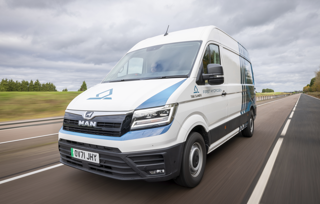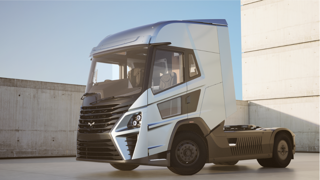Politicians need to show more leadership to accelerate the transition to zero emission transport, says Renault Trucks.
The manufacturer is seeing plenty of interest in the technology but feels this enthusiasm is not being converted into uptake through a lack of Government clarity and incentives.
Carlos Rodrigues, managing director of Renault Trucks, said: “While there is an appetite for electrification, and almost all OEMs are ready to help, there is no sense of urgency.
“For large organisations, SBTi (Science Based Targets initiative) and Scope 3 commitments are drivers for change, evidenced by the types of customers attending the main shows and the conversations we are having.
“Many larger companies have targets for decarbonisation, but SMEs have not even started and they will require even more support.
“There is not enough hauliers and companies looking for solutions and I think that is because we are leading leadership from our politicians.”
Rodrigues said areas include a lack of clarity around - and no fixed plans for - zero emission zones in UK cities, and a historic lack of investment and policy to support EVs which requires difficult decisions around legislation, including dispensation, incentives, support for energy supply and infrastructure.
He cited ongoing delays to the zero-emission road freight demonstrator (ZERFD) programme as a good example of this.
Rodrigues added: “We know that Paris, by 2030, will have its zero-emission zone, with Amsterdam and Copenhagen to follow.
“In the UK, the Government has said that by 2035, all new vehicles below 26 tonnes will be electric; therefore most people will think we are two cycles away from changing trucks.
“That’s not true and I think that is an important message. A Transport for London report from 2019 said there will be a zero-emission zone in London at some point around 2025. Will that move a bit? Potentially; I’m not the mayor.
“But if the zero-emission zone is 2030, it’s not two cycles away, it’s sooner than that. So we need clarity, not only for London, but for many cities in the UK about when they are coming, because they will.”
He said politicians also need to ‘walk the talk; and take immediate opportunities to reduce air pollution.
One of these areas is refuse collection vehicles. Around 2,000 are sold each year in the UK and Rodrigues said these could pretty much all be electric, particularly those which operate in larger conurbations.
“Politicians did something really good in the UK about buses: the air quality agenda has meant a lot of buses are electric and I encourage them to have the same leadership on bin lorries,” he added.
Infrastructure remains the biggest challenge, said Rodrigues. While technical solutions to bring power to depots are available in the market, they may be expensive and sloe down the take-up of BEVs.
For commercial vehicles, the on-road charging infrastructure does not exist in the UK today and more needs to be done to give people clarity on where and by when the infrastructure will be ready, he added.
Renault has seen sales of electric vehicles increasing across its whole range and this is mirrored in the growing focus of customers now looking to establish long-term partnerships, said Rodrigues.
Overall, Renault Trucks has strengthened its position in the UK and Ireland, improving its market share position for the past five years; it finished 2022 with a 7.5% UK HD market share. Since 2019, its volume of business has increased by more than 50%.
Pent-up demand caused by the past year’s value chain shortages is supporting another strong year in 2023. As of the end of June, Renault Trucks is at 11.8% market share in four-axle rigids.
It attributes this success to a number of factors; firstly, the investment in and expansion of its dealer network; and, secondly, the develop of its products – the Evolution models of both T and C products – has been positively received by drivers and operators.
Rodrigues added: “Predicting 2024 is challenging. Supply chain disruptions should improve, but the impact on the demand of inflationary pressures across the whole value chain and high interest rates impacting funding capabilities of our customers remains to be seen.”
























Login to comment
Comments
No comments have been made yet.